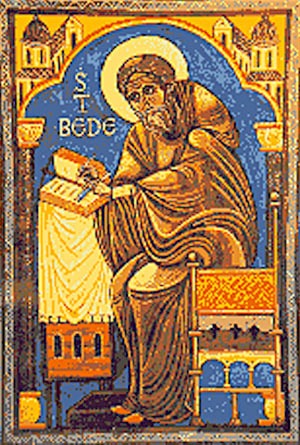Diogenes of Sinopis is remembered chiefly for the tub in the Metroum which for many years served him as a home. The people of Athens loved the beggar-philosopher, and when a youth in jest bored holes in the tub, the city presented Diogenes with a new one and punished the youth. Diogenes believed that nothing in life can be rightly accomplished without exercitation. He maintained that everything in the world belongs to the wise, a declaration which he proved by the following logic: “All things belong to the gods; the gods are friends to wise persons; all things are common amongst friends; therefore all things belong to the wise.” Among the Cynics are Monimus, Onesicritus, Crates, Metrocles, Hipparchia (who married Crates), Menippus, and Menedemus.
The Cyrenaic sect, founded by Aristippus of Cyrene (435-356? B.C.), promulgated the doctrine of hedonism. Learning of the fame of Socrates, Aristippus journeyed to Athens and applied himself to the teachings of the great Skeptic. Socrates, pained by the voluptuous and mercenary tendencies of Aristippus, vainly labored to reform the young man. Aristippus has the distinction of being consistent in principle and practice, for he lived in perfect harmony with his philosophy that the quest of pleasure was the chief purpose of life. The doctrines of the Cyrenaics may be summarized thus: All that is actually known concerning any object or condition is the feeling which it awakens in man’s own nature. In the sphere of ethics that which awakens the most pleasant feeling is consequently to be esteemed as the greatest good. Emotional reactions are classified as pleasant or gentle, harsh, and mean. The end of pleasant emotion is pleasure; the end of harsh emotion, grief; the end of mean emotion, nothing.
Through mental perversity some men do not desire pleasure. In reality, however, pleasure (especially of a physical nature) is the true end of existence and exceeds in every way mental and spiritual enjoyments. Pleasure, furthermore, is limited wholly to the moment; now is the only time. The past cannot be regarded without regret and the future cannot be faced without misgiving; therefore neither is conducive to pleasure. No man should grieve, for grief is the most serious of all diseases. Nature permits man to do anything he desires; he is limited only by his own laws and customs. A philosopher is one free from envy, love, and superstition, and whose days are one long round of pleasure. Indulgence was thus elevated by Aristippus to the chief position among the virtues. He further declared philosophers to differ markedly from other men in that they alone would not change the order of their lives if all the laws of men were abolished. Among prominent philosophers influenced by the Cyrenaic doctrines were Hegesias, Anniceris, Theodorus, and Bion.
The sect of the Academic philosophers instituted by Plato (427-347 B.C.) was divided into three major parts–the old, the middle, and the new Academy. Among the old Academics were Speusippus, Zenocrates, Poleman, Crates, and Crantor. Arcesilaus instituted the middle Academy and Carneades founded the new. Chief among the masters of Plato was Socrates. Plato traveled widely and was initiated by the Egyptians into the profundities of Hermetic philosophy. He also derived much from the doctrines of the Pythagoreans. Cicero describes the threefold constitution of Platonic philosophy as comprising ethics, physics, and dialectics. Plato defined good as threefold in character: good in the soul, expressed through the virtues; good in the body, expressed through the symmetry and endurance of the parts; and good in the external world, expressed through social position and companionship. In The Book of Speusippus on Platonic Definitions, that great Platonist thus defines God: “A being that lives immortally by means of Himself alone, sufficing for His own blessedness, the eternal Essence, cause of His own goodness. According to Plato, the One is the term most suitable for defining the Absolute, since the whole precedes the parts and diversity is dependent on unity, but unity not on diversity. The One, moreover, is before being, for to be is an attribute or condition of the One.
Platonic philosophy is based upon the postulation of three orders of being: that which moves unmoved, that which is self-moved, and that which is moved. That which is immovable but moves is anterior to that which is self-moved, which likewise is anterior to that which it moves. That in which motion is inherent cannot be separated from its motive power; it is therefore incapable of dissolution. Of such nature are the immortals. That which has motion imparted to it from another can be separated from the source of its an animating principle; it is therefore subject to dissolution. Of such nature are mortal beings. Superior to both the mortals and the immortals is that condition which continually moves yet itself is unmoved. To this constitution the power of abidance is inherent; it is therefore the Divine Permanence upon which all things are established. Being nobler even than self-motion, the unmoved Mover is the first of all dignities. The Platonic discipline was founded upon the theory that learning is really reminiscence, or the bringing into objectivity of knowledge formerly acquired by the soul in a previous state of existence. At the entrance of the Platonic school in the Academy were written the words: “Let none ignorant of geometry enter here.”

Moe is the founder of GnosticWarrior.com. He is a father, husband, author, martial arts black belt, and an expert in Gnosticism, the occult, and esotericism.


